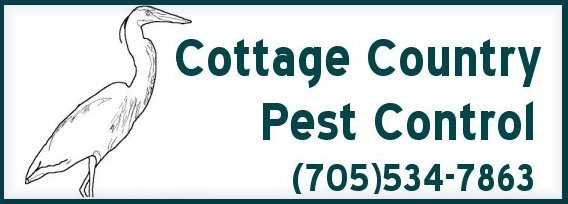In March, Cottage Country Pest Control did a
blog post about black widow spiders and then in May Ross received a customer call about a black widow spider at a house in Penetanguishene, which I did another
blog post about. They are native species to the United States, Canada and Mexico and the Northern Black Widow is generally found in British Columbia, Alberta, Saskatchewan, Manitoba and Ontario. As stated in the previous posts, it is rare to see them and even if you know where to look, you may never see one in the wild. They can generally be found around trash piles, sheds, under rocks, wood
piles, etc. Anyplace that is dark and a little damp is a great place for
them to hide.
Anyway, a few days ago Ross got another call about a black widow spider again at a house in Penetanguishene, so we thought it would be a good time to do another post about them and what can be done to help prevent spiders in general.
Female black widow spiders are known for their distinctive black and red colouring and a mature female black widow spider is usually around 1.5 inches long and about .25 inches in diameter. Mature male black widow spiders are very different in appearance to the
females. Males are much smaller than females with their bodies at less
than 1/4 inch, while juveniles have a distinctly different appearance then the females (and
some males) in that their abdomens are greyish to black in colour with
white stripes running across them spotted with orange or yellow.
Controlling the spider population in and around your home is "easily"
done by reducing the number of insects in and around your home. Using
IPM is the best way to effectively control spiders (and other pests).
If you have any questions or concerns Call Cottage Country Pest Control
at (705)534-7864 or
email us to book an
appointment--and remember - it's almost always better and
cheaper to deal with pest control problems when they are small.















